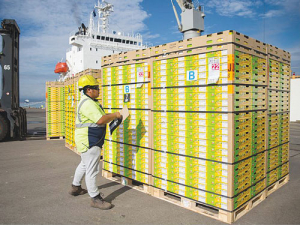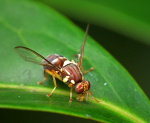In 2015 horticulture’s combined domestic supply and exports, excluding wine, were worth $5 billion.
The 2016 figures released recently show horticulture was then worth $5.6b: domestic supply rose by $200 million and exports by $400m. (Data from Plant & Food Research’s Fresh Facts annual accumulated statistics.)
Fresh fruit exports in 2016 increased by an impressive 35% over 2015. Outstanding performances were:
• Kiwifruit $1.7b, up nearly $500m or 42% on 2015; kiwifruit export value now exceeds wine exports ($1.55b)
• Apples close to $700m – up $130m or 23% on 2015
• Blueberries rose 50% on 2015 to $36.5m
• Cherries rose 30% to $68m.
Onions dominated the fresh vegetable export sector with a sizable increase of 38% from $81m to $112m.
Overall, the vegetable export sector rose 4%; in that sector 60% of the value is a mix of fresh, frozen, dried or a vegetable preparation (dominated by peas, potatoes and sweet corn). Much of our vegetable sector supplies NZ’s domestic market with fresh and processed product and is valued at about $2b.
It was not just the value of horticultural exports that increased; volume also rose, by 13%. The driver for the increase in value has been a combination of market mix, market conditions, varietal mix, fruit size better matching customer requirements and other similar factors. There is also a stronger emphasis on exports to Asia and away from our more traditional markets in the US, EU and the UK.
The horticulture industry has a goal, set in 2007, to grow its collective annual value to $10b industry by 2020. This is looking more and more achievable: the opportunity presented by Asia’s growing affluence will be a key driver of this growth. On the 2016 figures, Asia is 2.4 times more valuable than any other region, at $1.84 billion.
There is also potential to export greater volumes to the EU when the free trade agreement is completed. The 2016 volumes place the EU -- at $615m -- as the fourth-largest export destination behind Asia, North America and Australia.
The UK is now worth $126m, and it may present new opportunities because of Britain’s intention to leave the EU (Brexit).
Brexit and Theresa May’s disastrous election result caused the pound to lose value, making the UK a more desirable destination from a foreign exchange point of view. To effect Brexit, May will need a strong and stable government – which she lacks. She admits that Brexit may not be achievable because a comprehensive departure may devastate the UK economy. This is because for the UK to continue its all-important trade with the EU, it will need to abide by EU rules, otherwise it will be unlikely to get any EU trade deals.
So there is potential there for NZ to grow its exports, filling any potential vacuum left by the EU.
Looking forward, the future for NZ horticulture exports looks positive, with new market opportunities opening up through the Government free trade negotiations, exports increasing in value and volume, and with potential for growth in Asia, the EU and the UK.
• Mike Chapman is chief executive of Horticulture New Zealand



















